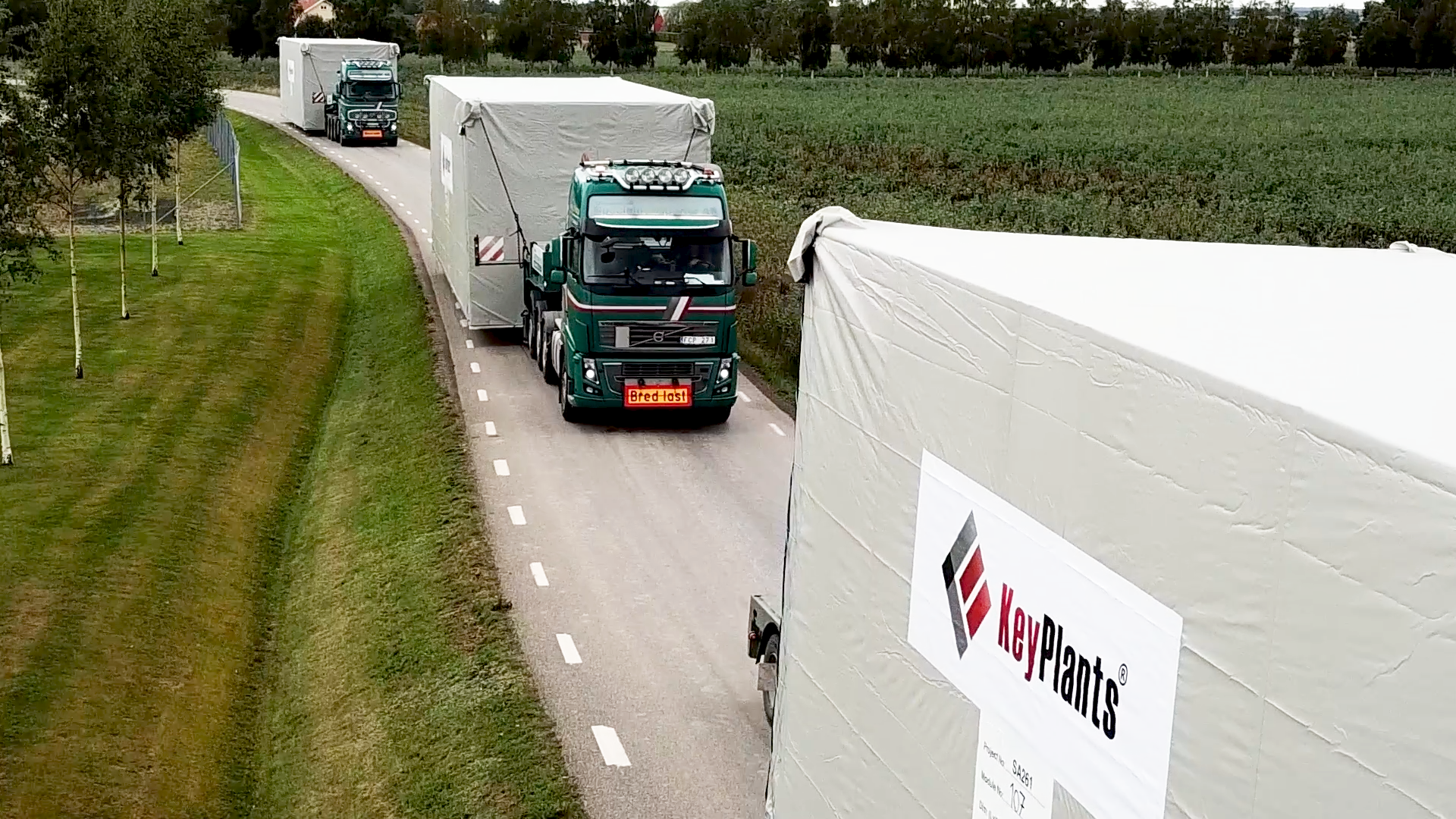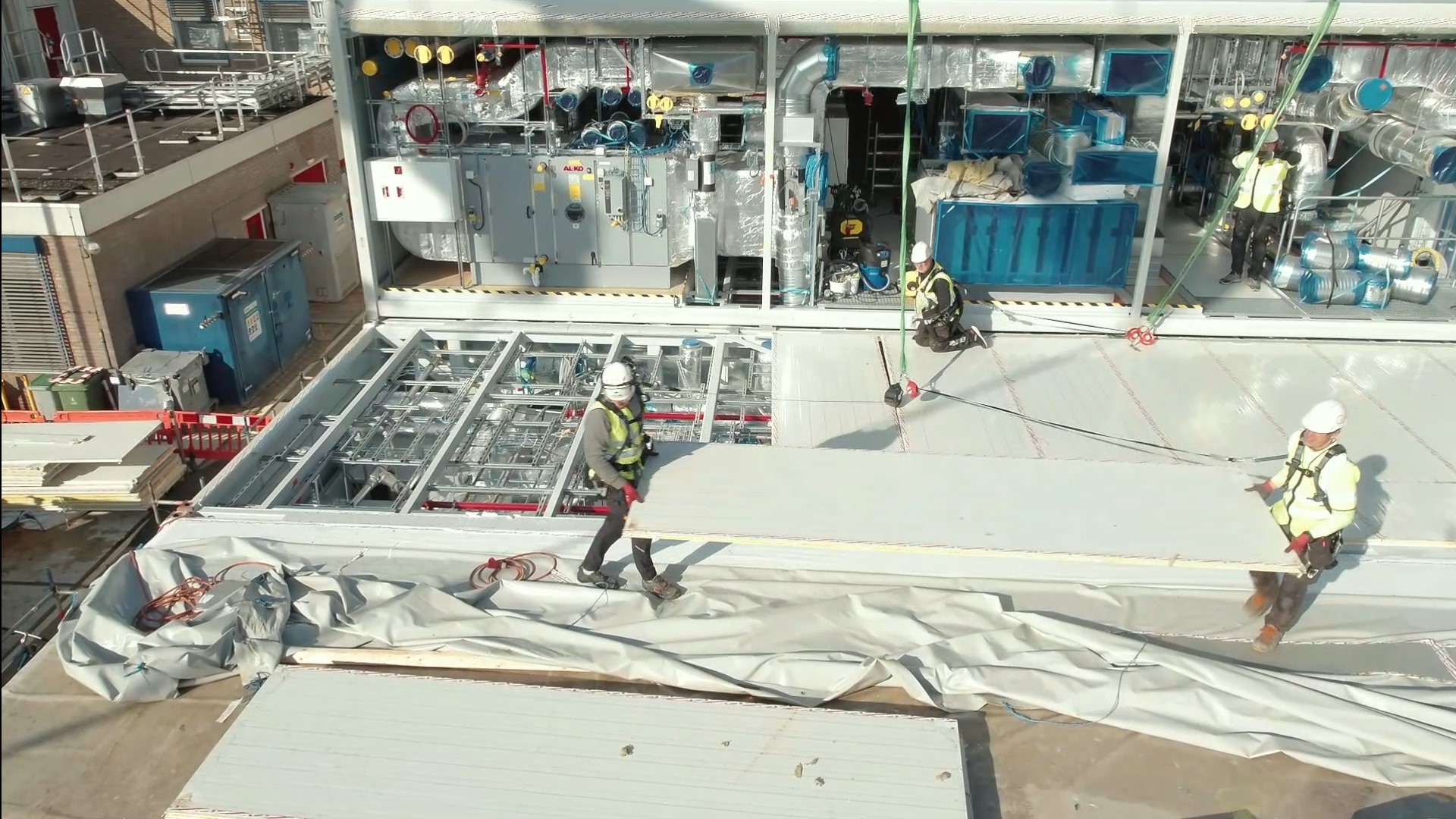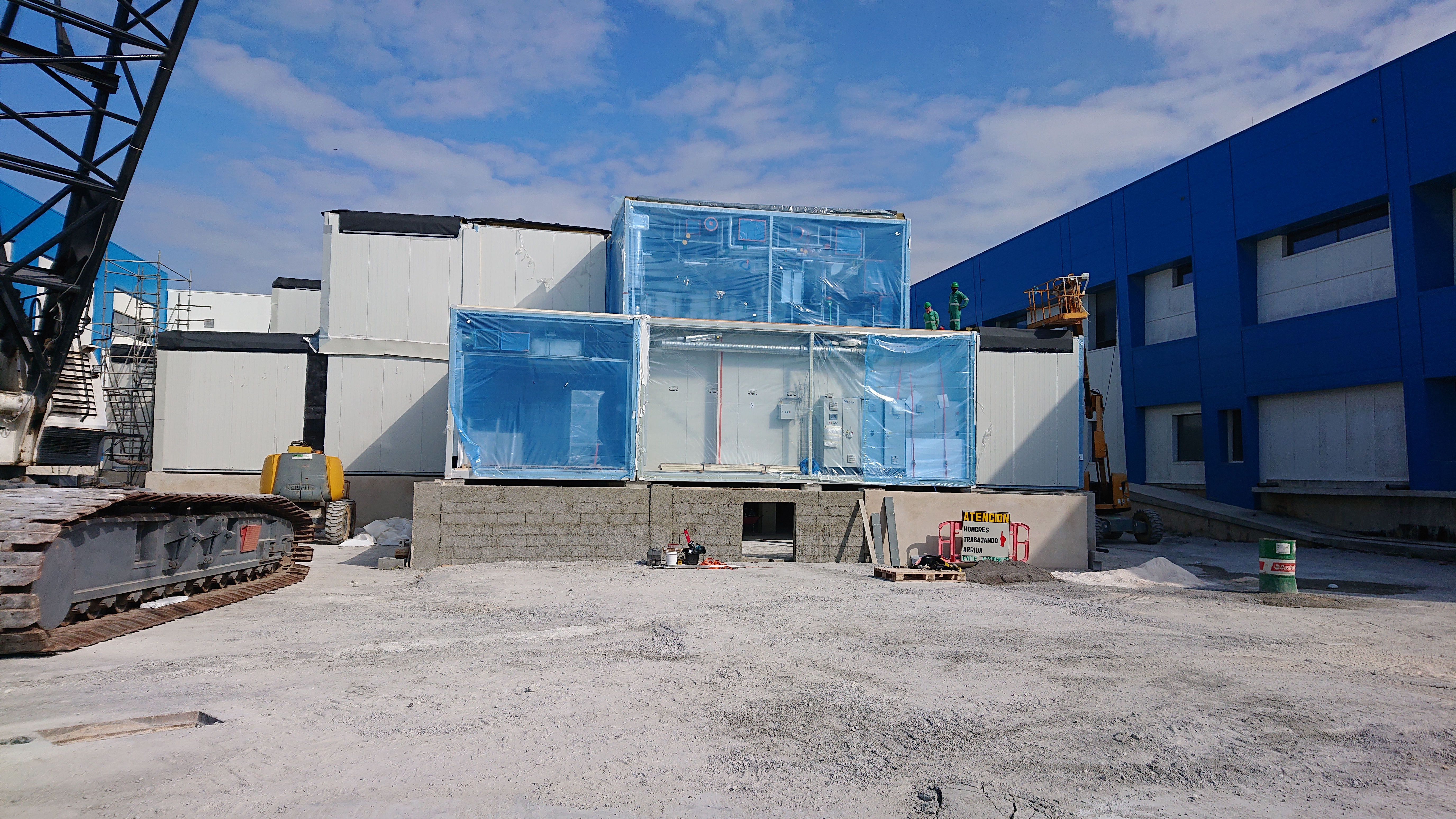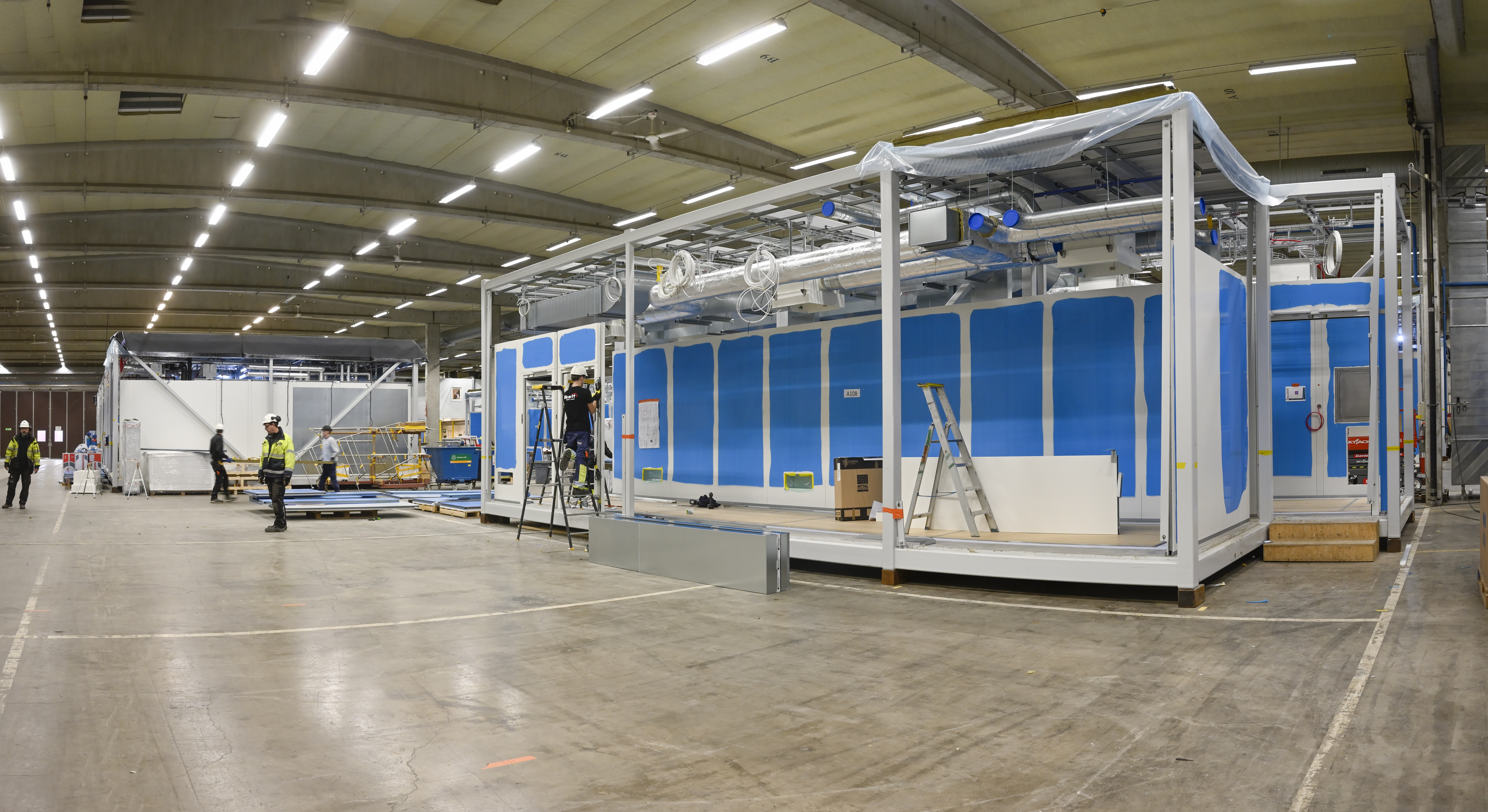In November 2021, news broke that Sweden-based modular prefabricated facility solutions provider, KeyPlants, had been acquired by Masco Group. The company has been steadily gaining traction in recent years with some high-profile projects, such as an African COVID-19 vaccine collaboration in August of 2021. As a key part of this growth, Head of Sales, David Lindholm has seen it all.
Lindholm came to KeyPlants in 2019 with an expansive history of 20 years in engineering and the pharmaceutical industry. Gaining his Masters in Chemical Engineering, Lindholm worked his way up to a managerial role at CDMO Recipharm growing from a local company to an international one. He then moved to life sciences expert Patheon, seeing the company through its 2017 acquisition by Thermo Fisher Scientific as Director of Business Development Europe.
I’m hoping that we will be able to deliver even more PODs within oncology and ATMPs
By all accounts, Lindholm is now well practiced at managing change and transition periods.
The sales expert explains that moving from operations into business development early on was a crucial time in his career.
It is in these years that Lindholm gained an appreciation for what the pharmaceutical industry needed, and how the design & build sector could facilitate this. "Pharmaceutical companies and CDMOs were all lacking capacity for biomanufacturing and fill-finish," he explains. "Challenges related to manufacturing slot reservation being one example. Another example would be long time schedules in capital projects."

Lindholm explains that his move to KeyPlants was in part motivated by the company's mission to simplify and shorten the lead time for building biologics production capacity. "[This] was exactly what the market was looking for," he says. He also mentions that the opportunity to develop and help shape how KeyPlants manage accounts, their business development and marketing was something he was attracted to.
Having seen the pharmaceutical construction industry from a consumer and a provider point of view, Lindholm thinks that what makes him so suitable for his job is that he sees the common perspective of all involved. All in all, his career is characteristic of someone who goes where there is need for him.
Local African production
Seeing most of its demand coming from Europe and North America, Africa is an irregular place to have a cleanroom project, but it is one that Lindholm has embraced with enthusiasm. He explains that since the pandemic there has been a strong increase in demand to build facilities for vaccines and pharmaceuticals in many regions, including Africa. The focus of this production is for regionalised local capacity Lindholm emphasises.
This global presence and focus culminated in KeyPlants collaborating with Univercells, Unizima, Intact, and the Senegalese government to establish a first-of-its-kind vaccine manufacturing facility under the management and ownership of the Institut Pasteur de Dakar. KeyPlants's main role was to provide expertise on creating capacity for short and long term needs.
We are very proud of being part of the initiative ‘Vaccines in Africa, for Africa’
"We are very proud of being part of the initiative ‘Vaccines in Africa, for Africa'," Lindholm states. "We're currently constructing the facility in our workshop and will the next month's ship and then install the modular plant at site in Senegal."
Through the project with Institut Pasteur de Dakar (IPD) in Senegal, KeyPlants will be contributing to the capacity to locally manufacture 300 million doses of vaccine per year. Lindholm explains that KeyPlants has worked with customers in developing countries previously and it was the trust from this experience and capability that made IPD choose them.
Breaking new ground
Lindholm had some very interesting insights on the pharmaceutical industry's trend of ATMPs (Advanced Therapy Medicinal Products), and how it impacts the construction side of things. He says: "Traditional pharmaceutical and biomanufacturing companies typically have a large amount of experience and expertise in high requirement production, for example, aseptic conditions. ATMPs on the other hand are often in the R&D stage and in the hands of researchers without the same experience in building and running production facilities."
The sales head adds that as these products move from the clinical stage to commercial, the owners face new challenges and his main challenge is to make the project owner understand the technical, and regulatory requirements, so their facility will be set up for safe delivery of medicines to patients.

It is this ability to communicate effectively and productively with clients that Lindholm accentuates as of key importance through many avenues. One of which lies in the design phase. "We often see that the customers internal decision process takes a long time," he explains. "And when they are ready to move forward, they face further challenges to define, finalise and freeze the project scope."
Lindholm emphasises if they are engaged early on, and can discuss the process definition, then a lot of the financial decisions can be made at a later date due to offsite construction methods, whilst still meeting the client's timing and budget targets.
Times are changing
Masco Group's acquisition must have seemed like deja vu to Lindholm, going through a similar process at Patheon. The Masco acquisition is particularly exciting as it provides a lot of synergistic characteristics. The clean utilities and process technology specialist will strengthen the global supply chain challenges and fast-track manufacturing timelines to a global customer base of biopharmaceutical manufacturers and CDMOs focused on biologics, pharma and advanced therapy medicinal products (ATMPs), such as cell and gene therapies. Lindholm is excited to see how this integrated project delivery will enhance both companies and further shorten lead times for projects around the world.

Speaking on reducing lead time, the modular trend is one that Lindholm is keen to address. Whilst he is in a role that pioneers customised modular facilities, Lindholm also has a keen interest in standardised PODs, and their increasing popularity. KeyPlants' PODs are portable on-demand cleanrooms that provide a rapid, scalable, and cost-effective solution for pharmaceutical development and manufacturing. "We see an increasing demand for our PODs, when a rapid and flexible facility is needed for high-quality production," he says. "I'm hoping that we will be able to deliver even more PODs to clients developing new treatments to patients, for example within oncology and ATMP."
This demand for reduced and reliable lead times is in no small part arising from the pandemic and Lindholm says that delivering all of their modular production facilities within time and budget has been one of the team's biggest triumphs. "The trend is shorter delivery time and more flexible manufacturing," he says. "Offsite construction is a perfect match for these drivers."
Lindholm really encourages those in charge of projects to consider a modular construction approach. The main draw of this approach being the project predictability and cost-effectiveness that is not as certain with other approaches.
Sign of the times
In discussion about current trends, Lindholm touches on sustainability and the pandemic.
Talking about sustainability measures, he thinks that the Life Science sector has several energy and resource intensive processes and a number of supply chain challenges. "The opportunity here is to learn from what we see and implement cleaner and more local manufacturing globally to reduce unnecessary transportation and misuse of waste management principles that are present in some countries."

He goes on to say that as a truly global industry we have the opportunity to create a collaborative and sustainable model of working and act to the critical role life sciences can play in both slowing climate change and helping cure people of the health impacts this also creates.
He also speaks about the trials of the pandemic and how customer visits due to travel restrictions had been a huge challenge. For example, final acceptance visits of a completed facility before shipping from the workshop. "During the initial phase of the pandemic this led to more work at site to finalise the facility," he says. “Now we have implemented a process for remote interactive FAT that has worked very well in the last projects."
After the initial phase of the pandemic, the focus has been on what the lasting effects have been. Lindholm is of the opinion that now the sector has demonstrated that vaccines can be developed faster than ever before, expectations from the industry are to continuously shorten the lead times, not only in development but also in building capacity for production. "The demand for capacity has increased in general, not only for vaccine production. And the demand for flexible manufacturing has increased," he says.
If there is one facet of pharmaceutical manufacturing that Lindholm wishes more in the controlled environment sector understood, it is that standardised solutions work for both parties. "I would also add that KeyPlants' values are close to my personal values. Pioneering is one example; KeyPlants is an innovative company always developing our way of working and our offerings. How we execute offsite construction projects in record speed and how we continuously improve and standardise our solutions."
